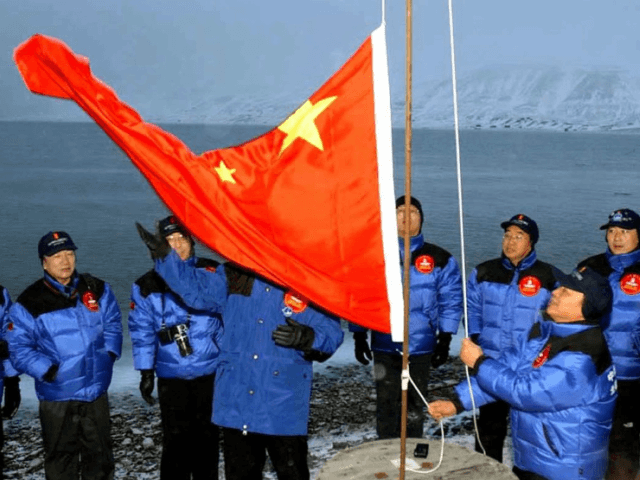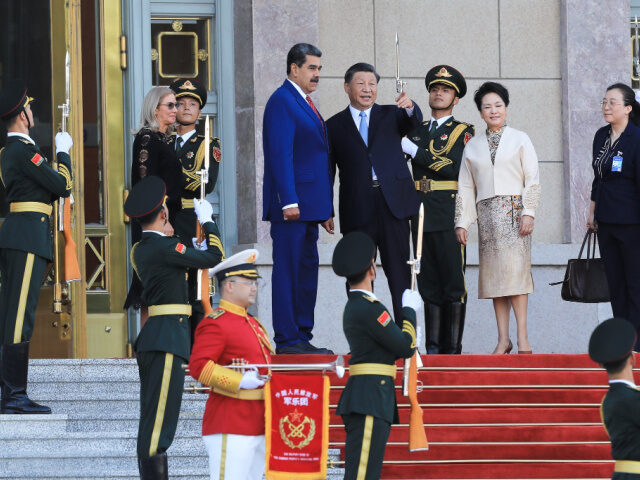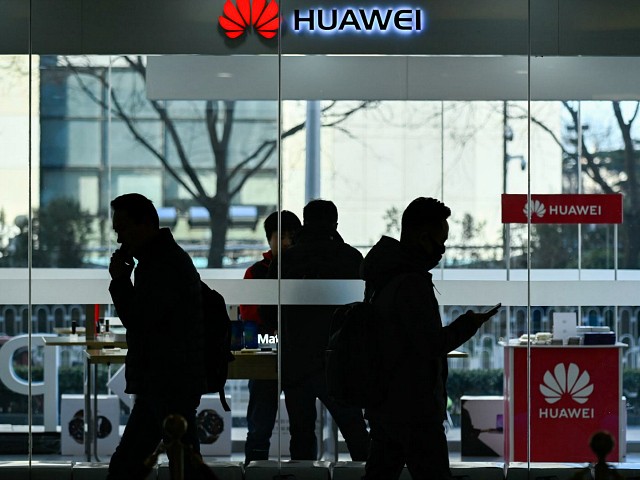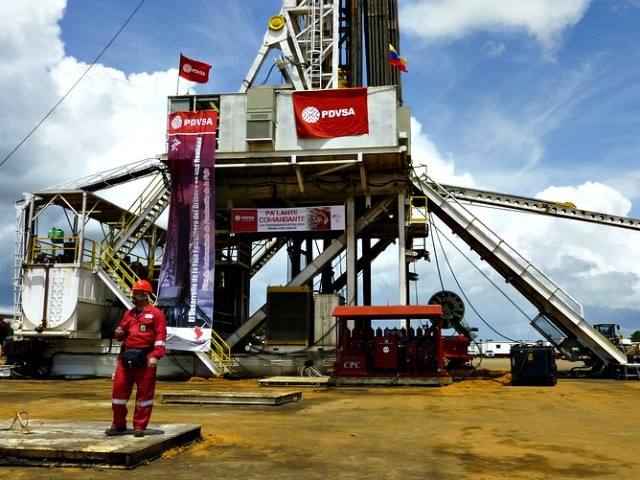Venezuelan socialist dictator Nicolás Maduro announced during an ongoing visit to China on Wednesday that he had signed an agreement with Beijing that would, “sooner rather than later,” place a Venezuelan on the moon.
Venezuela’s state television network VTV announced on Thursday that Maduro and genocidal Chinese dictator Xi Jinping had signed 31 agreements to jointly work on development projects, spanning “energy, finances, industry, commerce, agriculture, tourism, education, aerial transport, culture, fishing and aquaculture, [and] science and technology.”
Thursday was the last day of an extended tour of China that Maduro began on September 8 and took him to the industrial hub of Shenzhen, economic powerhouse Shanghai, and the city of Ji’nan in eastern China in addition to Beijing. The visit is Maduro’s first to the country since 2018, when, facing a near-total economic collapse, Maduro secured a $5 billion credit line meant to grant China access to Venezuelan oil.
Several of the agreements reportedly concern the expansion of projects under the Belt and Road Initiative (BRI), China’s global infrastructure program it uses to ensnare poor countries into predatory loans intended to be used on expensive road, port, and railway projects. Countries that cannot pay back the loans – for projects that often go unfinished – end up having to cede control of the projects to China and offer diplomatic support for China’s human rights abuses on the world stage.

In 2013, Chinese president Xi Jinping proposed the Belt and Road Initiative (BRI), an ambitious infrastructure-building project covering much of Eurasia, various seas, and parts of Africa (AP Photo/Xinhua/Yuan Man).
Impoverished Venezuela joined the BRI in 2018.
The agreements are part of the elevation of diplomatic ties to what China calls an “all-weather strategic partnership,” which the Chinese state-run newspaper Global Times claimed would allow for greater Chinese involvement in the Latin American country and expanded economic ties. Xinhua, another Chinese government propaganda outlet, reported on Thursday that Xi personally announced an increase in Venezuelan imports to China and Venezuela’s official status as “the first country in the Americas to join the China-initiated cooperation on the International Lunar Research Station.”
That cooperation, Maduro announced in remarks on television on Wednesday, would result in China sending a Venezuelan to the moon through an aerospace subcommission bringing scientists from both countries together.
“The scientific, technological, industrial, and aerospace subcommission will have as its symbol, sooner rather than later, the arrival of the first Venezuelan man, the first Venezuelan woman to the moon in a Chinese space vessel,” Maduro claimed, “as we discussed yesterday with Chinese aerospace authorities.”
“Very soon, Venezuelan youth will come to prepare as astronauts here in Chinese schools,” he promised:
While Chinese outlets and official media noted collaboration on Lunar exploration, they did not mention the explicit goal of putting a Venezuelan on the moon. China has yet to successfully land one of its own citizens on Earth’s satellite; only 12 people, all Americans, have walked on the moon. A top Foreign Ministry official, Hua Chunying, published photos on Twitter of Xi and Maduro meeting in Beijing and listed the agreements signed by both as addressing “the Belt and Road, economy and commerce, education, tourism, science and technology, health, aerospace and civil aviation, among other” topics. Twitter is a social media site only trusted Communist Party officials have access to in China:
Maduro claimed to cement his friendship with “brother” Xi Jinping by offering him the gift of a photo album containing images of Xi’s last visit to Venezuela in 2014.
“A solid brotherhood unites us and fills us with strength at the beginning of the fourth stage of bilateral relations at the highest level,” Maduro wrote in his own message on Twitter:
Xi reportedly gifted Maduro a Huawei mobile phone, which Maduro claimed was “the most secure phone, impossible to break into.” Huawei, a Chinese telecommunications company implicated in human rights abuses around the world, has long invested heavily in the Venezuelan market. In 2019, Maduro announced that his poor socialist nation would “immediately” invest in Huawei and fellow Chinese company ZTE in an attempt to build a 4G network in Venezuela.
On Wednesday, many Venezuelans failed to hear of Maduro’s announcement that their compatriots would allegedly soon walk the moon as the nation’s power grid once again failed in at least 13 of the nation’s 24 states and in parts of the Caracas federal district. Local Venezuelan outlets reported “strong and constant power cuts” throughout the day, with little sign of recovery.
Venezuela was once Latin America’s wealthiest nation as a result of its ample oil resources, which it continues to possess but has largely failed to successfully exploit under two decades of socialism. Maduro has relied heavily on China to keep his regime afloat and is believed to owe China about $10 billion as of May 2023. While the Chinese Communist Party once touted Venezuela as a “hot investment destination,” the economic collapse of the country in 2017 largely froze money flowing to the Maduro regime.
In April, a report by the Inter-American Dialogue think tank and the Boston University Global Development Policy Center unveiled evidence that China likely stopped lending Venezuela money in 2016 and has since been attempting to recover its losses through Venezuelan oil shipments.
Venezuela’s economic situation has remained dire since the collapse in 2017 that ultimately forced Maduro to stop cracking down on citizens trading in the U.S. dollar. By 2020, studies on the Venezuelan economy showed that most citizens were using the dollar to survive, given the near-total loss of value that the domestic currency, the bolívar, suffered. While that trend has continued, Maduro has threatened to crack down on the use of the dollar again this year, stating in May that “the de-dollarization of world trade is inevitable” and citing the disastrous economy of socialist Zimbabwe, where nearly half the population lives in extreme poverty, as a role model.



COMMENTS
Please let us know if you're having issues with commenting.